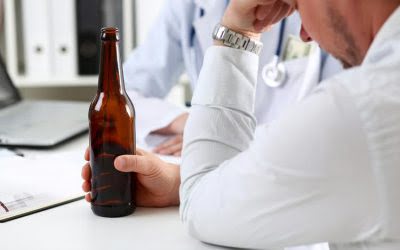Hangovers National Institute on Alcohol Abuse and Alcoholism NIAAA
Content
A good way to limit your overall alcohol consumption, and thus limit alcohol’s dehydrating effects, is to alternate alcoholic drinks with glasses of water. Drinking beer, a glass of wine, or other types of alcohol introduces a substance into the body that causes certain reactions. Therefore, alcohol induced dehydration can occur when drinking alcohol without having a glass of water–or more, depending on how much alcohol you’re drinking. When you drink alcohol, your body produces more urine than usual. This is because alcohol suppresses the release of an antidiuretic hormone (ADH) that normally helps your body retain water. Without enough ADH, your kidneys produce more urine, which can lead to dehydration.

As important as alcohol content may be, even more important is how much you drink in a given sitting. Drink too many beers too quickly, and you’ll end up as dehydrated as you would taking a shot at the bar. “Drinking one beer over the course of a dinner will not increase your blood alcohol levels as much as if you drank four beers in the same time frame,” says Rumsey. Vasopressin is an antidiuretic hormone that regulates body-water balance. Although it’s usually released during mild dehydration to conserve water, alcohol suppresses this release, accelerating its dehydrating effects through urination.
Why Is Alcohol a Diuretic?
Sugary and caffeinated drinks can have diuretic effects similar to alcohol, leading to further dehydration. So don’t mix your alcohol with these or drink them between alcoholic beverages. Alcohol can increase urine production, which can lead to dehydration. When the body is dehydrated, it tries to conserve water by producing less urine. However, alcohol can interfere with this process and cause the body to produce more urine than it needs to (breaking the seal). This can lead to dehydration and further electrolyte imbalances.
By now you know that alcohol does not have hydrating properties. There are, however, some studies to suggest that alcohol may have some other health benefits when enjoyed in moderation. For example, one study, published in July 2021 in BMC, Medicine found that moderate consumption sober house of any type of alcohol decreased risk of death in those with preexisting heart disease. Additionally, red wine is well known to contain resveratrol, an antioxidant that Mayo Clinic points out may decrease inflammation and play a role in decreasing the risk of heart disease.
WineSpectator.com
After you take a sip of your alcoholic drink, immediately both the liquid and alcohol contents of the drink pass through your stomach lining and small intestine into the bloodstream. If you didn’t eat and drink on an empty stomach, alcohol could be absorbed quickly into the bloodstream within minutes. But if you drink water or eat while you’re drinking alcohol, it may take much longer. The best way to avoid alcohol dehydration is to avoid consuming alcohol entirely. However, if you plan to partake in beer, wine or other alcoholic beverages, there are a few things that can be done to lessen dehydration’s toll on your body.

And to top it off, both Zeitlin and Rumsey explain, drinking alcohol will also make you urinate more often. Turns out, some alcohols — and more accurately, how you drink them — can be less dehydrating that other booze-filled beverages. It’s always tempting to throw a glass of wine into your system for every situation, and you always can. The Centers for Disease Control and Prevention (CDC) recommends limiting daily intake to two drinks or less for men or a drink or less for women. Hangover symptoms peak when the blood alcohol concentration in the body returns to about zero.
